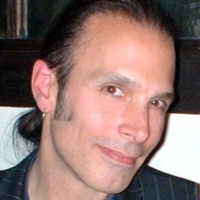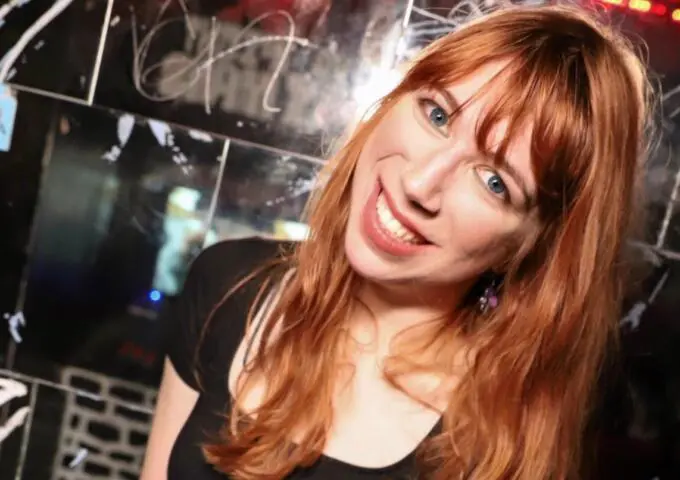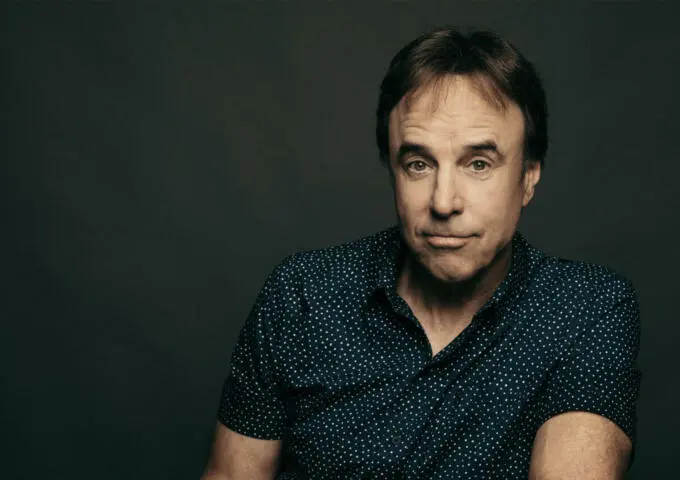Like so many cities with a vividly imagined arts locus, the Philadelphia theater scene, at present, is in trouble.
That’s Trouble, with a capital “T.”
And that rhymes with “P.” And that stands for Pandemic, the likes of which have closed local stages since March with questions of safety and distance for artists and audiences going forward.
And that stands for the accusations of systemic racism – to say nothing of charges of sexual harassment – the likes of which rocked PlayPenn, its annual summer season of New Play Development, and brought down its longstanding, founding artistic director Paul Meshejian (who resigned) and associate artistic director Michele Volansky, who was fired by PlayPenn’s board of directors last week.
And that stands for the hassles of the Actor’s Equity Association and local theater, whether it’s trying to allow actors on stage together, safely, for filming and streaming purposes, paying actors properly for the potential of a global audience – and the potential of big money – rather than strictly a Philly crowd once gone virtual and streaming, as well as the jurisdictional dispute between theater unions and the Screen Actors Guild-American Federation of Television and Radio Artists.
We’ve surely got trouble.
Anything that slows the roll of a large portion of this city’s arts dollars, its $4.1 billion total economic impact and the ongoing, aesthetically driven pursuit of its 55,000 full-time workers (according to the Greater Philadelphia Cultural Alliance) spells trouble.
Since March, when Philly stages shut down due to state regulations in accordance with COVID-19 quarantines, most of the city’s artistic and producing directors have stayed talking to each other, via Zoom meetings, about what could be done and should be done regarding everything from live and recorded streaming events to union issues, to each company’s responses to Black Lives Matter. (Oddly enough, there have been several rumored omissions of big companies and theaters not heard from during this time, or artistic directors who have avoided Zoom meetings. As they have not been contacted by me by press time, I will not out any of these companies).
Luckily, as inventive, independent and equitable as Philadelphia theater is at its best (and probably its worst too), is how dedicated many of its artists and administrators have been in trying to solve its problems as swiftly as possible while distanced in quarantine.

Looking back
The last time Philly stages were bases-loaded-up-and-to-bat was in March, between the 8th and the 10th to be exact. “Babel,” by Jacqueline Goldfinger, was finishing its run at South Philly’s Theatre Exile. Director Jaylene Clark Owens’ multi-author penned “Renaissance in the Belly of a Killer Whale” was readying its end at Broad Street’s Wilma Theater with Aleshea Harris’ “Is God Is” hot on its heels.
“The last show I did was ‘Cabaret’ at Bristol Riverside Theatre,” said singer, actress and First Vice Chair of the Philadelphia Actor’s Equity Liaison Committee Meredith Beck. “We opened one night, closed the next. I thought we’d get at least a few weeks when COVID-19 started. I was wrong. At least we got a chance to open, though. Interesting too, that ‘Cabaret’ was about the world ending … and life being forever changed. Society will definitely operate differently coming out of this pandemic.”
Even though we’re coming into month five of isolation, every artist or manager I spoke to was as daunted as the day they first shuttered stages and closed doors.
Theatre Exile’s Producing Artistic Director Deborah Block recognizes the obvious, that the heart of theater is about gathering, that artists and audiences feel good when together, creating a shared experience, and that COVID-19 has now made theater’s togetherness – like dining out or going to a ball game or concert – dangerous or uncomfortable.
“It’s made us feel vulnerable, so when we are legally allowed to gather, we will have a hurdle to jump through in order to feel good in the company of others,” said Block. “We know that we want our audience members in the best state of being before the lights go out to start a show. That will be almost impossible for a while.”
Exile was in an odd place just prior to the pandemic. Its basement theater property at the corner of South 13th Street was freshly-opened as part of a brand new condominium complex that took well over a year to construct. Exile was also in the middle of a capital campaign, an effort on the part of the nonprofit to raise significant monies.
“We determined that we needed three years to find our new business model so we were committed to being lithe and flexible,” stated Block. “That flexibility helped us to adjust to the pandemic and new societal norms around gathering. On the flip side, we have no business model to fall back on. We were just about to explore expanding our staff to be ready to deal with a new building and rentals and all of the things that would change because we were growing. I am forever thankful that we did not go through that expansion yet. That could’ve devastated us.“
The Wilma, too, was in a period of dramatic transition in March. Along with just having hired proactive multi-hyphenate Leigh Goldenberg away from her marketing manager gig at Theatre Philadelphia to be the Wilma’s new managing director, the theater’s legendary co-founder, creator and artistic director, Blanka Zizka, shifted Wilma’s leadership model. Zizka brought in three additional co-artistic directors in what was called “The Next Chapter.” Joining her was Philadelphia playwright-director-actor James Ijames, Brooklyn-based director Morgan Green, and Yuri Urnov, each serving as lead artistic director for a season, for the next three years, with Urnov plotting the 2020-21 season.
“It’s so tough thinking about reimagining what theater is when we’re all in separate spaces,” said Goldenberg. “We’re on Broad Street and operate a café (Good Karma Café) which is now closed. Our education and portable outreach programs … they’re all virtual … no going in classrooms or libraries. … Theater is all about access, and presently the in-person option can’t be there.”
Power Street Theatre’s co-founding co-Artistic Directors Gabriela Sanchez and Erlina Ortiz’s multi-cultural, multi-racial collective of multidisciplinary artists in North Philly had, after eight years of existence, only recently started making a very small living wage through their work at the company.
“Depending on what grants come through in the next few months, we may have to redistribute our energies to other jobs that will pay our bills – if we can find them,” said Ortiz, “and I know we aren’t the only ones making those calculations. The lasting damage that I see will be that many artists, especially BIPOC artists, will reconsider pursuing theater careers out of necessity, because funding for arts has become and may continue to become more scarce.”
Said Block hopefully, “I don’t think there is any lasting damage, however there is lasting change. Theater by nature is ever evolving. In the case of Exile, the small garage where we were able to do daring theater for 50 people, doesn’t exist anymore. Regardless of what propels growth, we can only go forward. As is the case for everyone, the road ahead is very hard to see.”
That said, how will theaters move forward – especially smaller room theaters, marginalized community theaters and those POC without the advantages of institutional monies and position within the community – when Pennsylvania state codes move from Yellow to Green, and distancing/safety procedures are put in place.
Exile’s vision of full flexibility was a major part of reconstruction and will serve the staff and stagers well when they return.
“We have a swing room that we call the lab that we can use as a second dressing room to keep the actors apart,” noted Block. “We have the ability to use our courtyard to manage how people enter the building. They will have three ways to enter the theater. Because we have two lobbies, we can stagger how people enter the theater and make sure the lower space is clear before we let a second round in downstairs. We will also only be allowed to have between 30-40 people in the performance space with social distancing, depending on how we set up the stage. So managing that small group can be done with our multiple entrances.”
Exile also bought a brand new HVAC system to help with filtrations, the oddest thing as that was not part of its original plan.
“We have windows in the theater that we have covered, but in such a way that we can open them up to help air out the space. No one wants windows in a theater. We were upset by that when we originally found out. Now, I am thrilled.”
The Wilma’s talk of physical reinvention for purposes of audience and artist distance and safety is historic, the talk of the New York Times and beyond: the Wilma Globe.
Created by Urnov with set designers Misha Kachman, Sara Brown and Matt Saunders and video designer Jorge Cousineau and inspired by the legendary arena theater, Shakespeare’s Globe, the new model to be built within the current Wilma puts audience members – as few as 35, as many as 100, individually or in small groups – into two tiers of boxes/stalls separated by wooded dividers while facing the stage.
Twelve or more film and video cameras will be placed on-and-above the stage (“in actors’ pockets, on the furniture,” said Urnov) for maximum multiple angles and aesthetic options, as well as offer greater streaming capabilities to a broader, outside audience. Ultimately, Wilma Globe is about creating new ways for actors and audiences to relate to themselves and each other in a post-pandemic Philly.
“We started thinking about the space in March, immediately upon our closure,” said Urnov. “We found an interesting idea with the boxes, separating from each other. Half of the idea is for live staging when possible – if we can have an audience – and the second half is the digital live streaming aspect just as soon as we’re fine with Actor’s Equity. Multiple camera-people will be in the space, everywhere, in the rehearsal from the very first day to the stage, and will move and interact with the director. They’ll work shoulder-to-shoulder with the director, planning a video plot for each production. Similar to what we do with lighting cues, we’ll cue the cameras, switch from camera 9 to camera 12. It won’t just be a live stage production being recorded, but neither will it be a film – it is a new artistic version of the theater video something … I see and hope that there is space and faith for invention … make it more. The genre doesn’t exist, so we don’t have a name to name it, yet.”
Moving forward while thinking big – like the Wilma and Exile – for a smaller theater of color such as Power Street, the concepts of the Wilma’s Globe and Exile’s flexibility is almost foreign.
“Several folks within Power Street are immunocompromised – we did a show called ‘Hidden Disabilities’ a few years ago that spoke to that issue – so I don’t see us doing live-in-person shows until there is a vaccine,” said Ortiz, matter-of-factly. “The financial barrier of providing PPE to staff and audience for a live show is almost insurmountable for small organizations. Financially we are given the short end of the stick. We don’t have a large pool of major donors to turn to. In our most successful campaign, we raised 10 grand in one week, and the majority of those funds were small donations from fellow arts and culture workers.
“Every leader needs to address the systemic racism that is inherent in each of their own companies … After a series of conversations with my staff, board and supporters, my takeaway was that I was better at addressing misogynistic micro and macro aggressions than racial ones. And while our programming and staffing and board are not homogenous, we can still do better.”
– Thearter Exile Producing Artistic Director Deborah Block
Foundations are mostly white-led and they tend to put more faith in white-led institutions. BIPOC artists have to work twice as hard for twice as long before they are trusted with large funds to do this work. In some ways, however, Power Street has a benefit, being smaller, because we are used to making something out of nothing and operating in crisis mode. We are used to being flexible. No season of Power Street’s has looked the same as the last.”
Addressing racism
Deeply institutional and systemic racism, racial injustices and bias, and even issues of sexual harassment all figure into the present-day drama unfolding at PlayPenn, the new script development workshop and an annual festival. By the time of the recent upheaval in staff, countless theater artists had spent the season of COVID-19 pointing out PlayPenn’s all-Caucasian staff, the manner in which its directors devalued Black speech and invention, and logged allegations of sexual harassment against donors such as one-time, PP board member Victor Keen (WHYY.org published a statement from Keen that apologized but did not deny said allegations).
While the outing of PlayPenn as having racist and sexually harassing tendencies is a bold move for its victims, past and present, the tradition of such injustices are hardly new or very removed from other local companies.
“Every leader needs to address the systemic racism that is inherent in each of their own companies,” said Theater Exile’s Block. “I thought that I was doing all right when I expanded the voices that explore our mission. But it wasn’t enough. After a series of conversations with my staff, board and supporters, my takeaway was that I was better at addressing misogynistic micro and macro aggressions than racial ones. And while our programming and staffing and board are not homogenous, we can still do better.”
Exile’s answer is in the works, a process of assembling board and staff committees that will work to influence the company’s strategic plan. “All racial equity efforts need to be part of all of an organization’s activities and that both the board and staff must be working in concert with each other. It needs to be part of the bones of the organization, not just outward-facing. As a (local theater) community, we’re not running from our mistakes but are facing them head on. I am hopeful that we will be better for it on the other side.”
The Wilma’s Goldenberg has long looked into inequality where nonbinary and trans artists of color and artists of color came to play when she started at Theatre Philadelphia, a revolutionary marketing arm that tended to the duties of navigating all aspects of the Barrymore Awards, this city’s annual “best-of” celebration. More artists and producers of color were asked to be adjudicators under her reign. Gender divisions such as Best Actor and Actress became fluid, and the Barrymores became more equitable with Goldenberg’s guidance.
Along with pointing out the Wilma’s June streaming screening of James Ijames’ police slaying drama, “Kill Move Paradise,” to benefit Black Lives Matter Philly, Goldeberg states the Wilma – from its staff and its board to its HotHouse group of actors – is forever pushing to use its platform in useful ways.
“We’re thinking about direct ways that we can work against racism and hold ourselves accountable … what we need to measure and track. … Where the theater scene is starting from is just so far back that even with the best of intentions – hiring artists of color, producing stories by artists of color – we’re rooted in an inequitable system. Any idea of growth is rooted in white supremacist concepts. Things the Wilma has achieved, such as a good budget level, a property on Broad Street, the frequency of producing. Yes, we need to celebrate that, but we also need to support and amplify other voices.”
Urinov reminds me here that he just became a permanent citizen in April, and that his understanding of American history, “of what is American guilt,” is progressing every day. “The last several months have been an educational seminar for me.”
Erlina Ortiz from Power House, a company of color, expresses her thoughts on the PlayPenn situation best with this metaphor: “Your toe hurts. Your body is telling you something is wrong with your toe. Your leg hurts. Your body is telling you something is wrong with your leg. You ignore it. You start limping. Your back hurts. Your body is telling you something is wrong with your back. You do yoga one day and hope that will fix it. Your whole body hurts. You take Motrin to hide the pain but you don’t actually address the problem. Finally you end up in the hospital and there is a crisis. Your body has been broken for so long. Why have you continued to ignore it? Don’t you want to find out what’s wrong? Don’t you want to fix it?”

What happened at PlayPenn, in her opinion, is a symptom of a wider disease.
“The community finally had to stand up and say enough is enough. Too many conversations were had at PlayPenn to privately address these issues and nothing was done so … I’m not surprised things blew up the way they did. And yes. That was why Power Street was founded. We realized as freshly graduated theater artists that there was no place in this community for us to do our art and to be our true and authentic selves. I truly do not think I would have survived in this community if I didn’t have Power Street. I would either have given up on theater or I would have contorted myself so badly into the shape that White Supremacist theater wanted me to be that I wouldn’t even recognize myself today. But we are unlearning as well. For so long we thought that success would be Power Street looking like and being a Wilma Theatre or InterAct Theatre to North Philly. That was the only thing we could look to as success, but that model actually doesn’t serve us or what we want to do with our communities.”
Beck, the actors union’s first vice chair, states that Actor’s Equity has strong guidelines in place that prioritize safe working conditions and working situations free from harassment, prejudice and bias. “There is always supposed to be a chain of command in reporting any problems. That, though, is trickier said than done … there is such a fear of saying how you feel, that you are uncomfortable that you have experienced something inappropriate and that somebody should be stepping down as a result … people fear being blacklisted, being perceived as difficult to work with, and never being hired at that theater or any other again than to get an artistic director or a donor to step down.”
More so than ever, during this break in time, Beck believes that the free pass is disappearing for those using racism, misogyny and inequity as their calling card. “Everyone in the theater industry has time to stop, ruminate and question the problems within the system, Maybe even fix them. There is necessary confrontation going on and necessary conversations will continue.”
Actors Equity and other unions, such as the Screen Actors Guild-American Federation of Television and Radio Artists (SAG-AFTRA) play a large part in the last chapter of the feature.
The mother of invention that is the season of C-19 has forced many a company into creative performance options – nearly all of them involving video or streaming capabilities.
Bristol Riverside Theatre has found a way to film and stream its summer musicals, adapting virtually, with singers filming themselves from their homes. Kensington’s Papermill space and its Hella Fresh Theater present an old Hollywood tale, “Frauenschlläechtere,” in installments mailed to you via USPS mail, with a performance (or some sort) in your home at play’s end. Old City’s Arden Theatre hosts “Arden Up Close,” an online feature paging through details of its favorite productions. People’s Light in Malvern filmed videos of both “Shakespeare in Love,” and the about-to-open “ Hold These Truths.” “Society XI Online” is the virtual musical subscription offer from 11th Hour Theatre Company running through Sept. 19. The Idiopathic Ridiculopathy Consortium presents “Into the Absurd: A Virtually Existential Dinner Conversation” every Saturday through Zoom and its Facebook page with various guests. Deborah Block states that her company’s “Exiled with Exile” series of online play-lets and post-show conversations combats the blues of not being on stage for audiences and artists alike.
“Everyone in the theater industry has time to stop, ruminate and question the problems within the system, Maybe even fix them. There is necessary confrontation going on and necessary conversations will continue.”
– Philadelphia Actor’s Equity Liaison Committee vice chair Meredith Beck
“One of the things I really enjoy about running a company is being around after performances to talk with audiences about the show,” said Block. “We cannot underestimate the importance of the conversations that happen in the lobbies or restaurants or bars after the show. What we’re doing with Exiled with Exile is coming up with creative ways to connect with our audiences or to look behind the curtain.”
Wilma Theater has had the most luck with innovative non-mainstage virtual productions. Along with showing off “Kill Moon Paradise” in June, Blanka Zizka co-wrote and directed a tense new drama, “Code Blue,” with two HotHouse actors in tight, sweaty close-up filming from home. Last week saw director James Ijames and AV designer Thom Weaver making dusky radio theater magic and the WIlma’s first aural drama, Aleshea Harris’ blood-and-violence driven, Obie Award-winning darkly comic drama, “Is God Is.”
“The pandemic happened within a month of Wilma announcing our next chapter,” said Goldenberg. “We wanted to work, to create. It’s why people lead a theater.”
Ask Urnov how alluringly innovative streaming explorations fit into the Wilma’s aesthetic, and he reminds us that it is the heart of what has driven the avant-garde theater since 1973.
“Experimentation is the soul of what the Wilma is and does,” he said. “Sometimes limitations such as the ones before us now … I actually think it is kind of amazing. Now, I wonder how long or how many of these can sustain us. We must market these things anew to a new audience. What are people going to pay for content such as that? Permanent experimentation on one hand is beautiful and super inventive, but still the return to live theater and live audience…it’s not possible to not dream about it.”
“The Wilma is under a Theater Authority Agreement for ‘Is God Is,’ where they had to work with Actor’s Equity – Theater Authority meaning that, to get permission to do this, the show had to be a fundraiser, and to watch meant donating $10 or more to get the link to view the production,” stated Meredith Beck, vice chair of the Philadelphia Actor’s Equity Liaison Committee.
Though Erlina Ortiz at Power House seems cool to the idea (“I’m OK with experimenting and trying new things, but at the end of the day we will just have to be patient until we can be in physical communion with each other again”), moving forward with online/streaming theater is a tool for local theaters to keep the lights on, literally and figuratively. To do so, however, Philly theater companies must get around issues with and through Actor’s Equity.
Everyone has just a slightly different version of what it is Actor’s Equity does, represents, and challenges in the case of C-19 staging and streaming. Ultimately, however, since the pandemic, Actors’ Equity has told theaters that they are not sanctioning live performances due to safety concerns, and they’re allowing streaming for that same reason. Simultaneously, the union would fight for actors to be paid for their performances, including those streamed or online. Add the Screen Actors Guild (SAG) into the mix, trying to figure whose jurisdiction – theirs or Equity – filmed versions of past theater shows or new plays filmed in an empty theater fall under. What makes this not a television show or movies?
“Honestly, it’s all been quite confusing and frustrating,” said Exile’s Block. “A live streaming performance is always different from something that has gone through post-production. It is beyond frustrating that the union disputes that preceded the COVID situation are not allowing these sister unions to work together to solve this problem. SAG-AFTRA unions really aren’t in a position to address the needs of the many theater companies across the country right now.
For the sake of not devastating an industry, I hope that they can put a one-year hiatus on their disputes and create a contract with a sunset on it so that the union that is used to dealing with the theater companies can freely deal with us now. And who knows, maybe they will discover things that will help them address their long-term concerns in the process.
All over the country creative people are coming up with innovative ways to create art and connect with audiences. And Equity is giving people a hard ‘no.’ Exile is in the same place as everyone else. We want to create art and connect with our audience and keep our community working. And we want to do so in a way that protects everyone. If Equity is not part of the problem-solving group, then we will figure out how to solve the problem without them.”
Meredith Beck is hoping with theaters, but gets the headaches theaters, companies and producers are going through as she’s on both sides as a union boss and as an actor.
“Beyond keeping actors safe, the problem became, suddenly, the idea of greater access – a global audience for a play – that wasn’t there for its live staged version,” stated Beck. “This affects, say, a contract where your actor is getting paid X number of dollars for rehearsals and a one-time stream. But you as the producer suddenly have the ability to sell tix to the entire world … that seems like the actors should get more money due to the gross opportunity … it should be infinitely greater than if you were only doing the run of your show for five performances to a room that fits 100 people max … so how is an artist compensated for this?”
In this regard, Actors Equity is no longer a villain, but a watchdog, as well as a school crossing guard safety, and a nurse.
“Performing in quarantine together doesn’t just require actors, it is whoever else is in the theater space – director, stage manager, lighting director, sound person, choreographer, props person – how do we handle those props going back-and-forth? It’s just like with sports … players might be quarantined together, but are we watching their families – where are their children going – it starts as a simple idea, let’s quarantine everyone together – until it is not.”
Beyond performing from home – individually and virtually – the only way to guarantee safety in the COVID-19 sense, Beck is stating that all productions must have conversations with Actors Equity, and present all possible plans that guarantee an actor’s well-being with the theater company’s Equity business rep and before doing a show, each company and artistic and producing producer should bone up on the COVID-19 Safety Resources for Producers in order to apply.
With that, Beck is guessing that the answers to questions such as “how can I create signature art that will get me through the next season?’ will be answered by one and two-person shows, or shows performed in outdoor venues.
Be it looking at racist, sexist and inequitable producers, patrons and staff or figuring out what a visionary virtual future for theater is, in the immediate future (and far beyond?), Beck found one favor with being stuck in quarantine.
“As actors, directors, stage professionals and such, we’re always busy,” she said. “We live in a theater bubble, go from show-to-show, cast-to-cast, meet new people. This forced shutdown has a great opportunity for us to look at who and what we need to be, and how we must support it. What voices have not been heard but should be … how can we all be part of that … how do we come out of this time – a pandemic, a time of racial and social reckoning – better stronger and listening to each other?”





